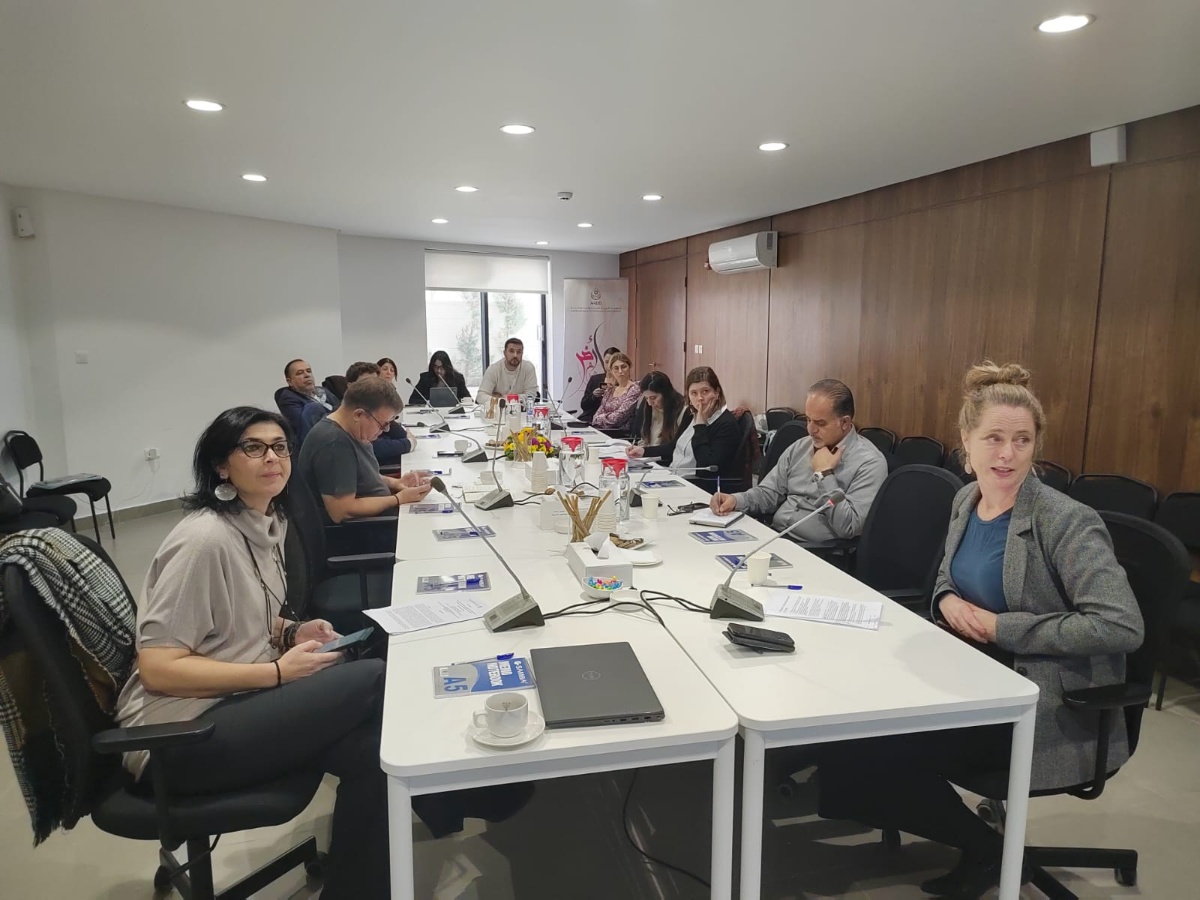The Arab Renaissance for Democracy and Development (ARDD) organized a roundtable discussion on Tuesday 13th of December on the continental encampment and humanitarian containment policies implemented globally and regionally.
The webinar was moderated by Al Nahda Center Senior Research officer at ARDD, Dr. Mariam Abu Samra, and the main speakers were Mrs. Francesca Albanese, ARDD Senior Advisor on Forced Displacement and Statelessness, and Dr. Kjersti Berg, a postdoctoral research fellow at CHr. Michelsen Institute (CMI) and historian and assistant professors at NLA University College in Norway.
Dr. Mariam Abu Samra started the roundtable discussion by stressing the importance of discussing continental encampment, the feasibility of refugee camps, and the impact of new policies being implemented in Europe to contain and prevent the flux of refugees and migrants from the south of the Mediterranean to Europe, following the Mediterranean refugee crisis in 2016.
Dr. Kjersti Berg stated that “the measures used to prevent refugees and migrants from leaving the region and returning those who try to leave, has made the Middle East region a zone of containment, where millions of refugees remain indefinitely, according to her. She added that these policies differ from previous policies in their extent, geographical reach, and the range of measures used to stop migration.
She linked that with a case study that she presented about nearly 4000 Syrian and Palestinian refugees who sought refuge in Gaza after the Syrian War, only facing the grim reality of an equally fragile host community in the Gaza strip, such as the blockade, soaring rent prices, lack of employment prospects. In addition, the UNHCR does not operate in Gaza, hence they were only left with the limited relief services offered by the already overburdened UNRWA, which facilitated their access to UNRWA schools and clinics. This vicious cycle prompted most of these refugees to leave the Gaza strip and seek refuge elsewhere. According to Dr. Berg “due to the continental containment strategy refugees are forced to seek refuge in marginal places, some of which are considered dangerous locations.
Dr. Berg also tracked the evolution of the “genealogy of containment” in the Middle East with the start of the Palestinian refugee camps that turned into sites of containment, stating that the year 1967 was a turning point with the occupation of the West Bank, Gaza and East Jerusalem, as well as the introduction of the 1967 additional protocol to the 1951 Convention which removed the refugee convention’s temporal and geographic restrictions so that the convention would apply universally. According to her, this was a critical turning point because the UNRWA camps” went global” and normalized enforcing the role of camps as a containment policy.
Samar Muhareb, ARDD Chief Executive Director, commented on political proposals of turning Libya into a host country for refugee camp sites in the Arab world, which she stated was a political decision to make a whole country in charge of managing refugees coming from African countries and preventing them from going to Europe. She said that “the word containment is triggering so many sensitivities in the Arab world, we don’t want to the be the “container” as we are already burdened with enough turmoil,” stressing that this sort of political decision will trigger more conflicts in the future.
This view was supported by Albanese, who stressed that containment as a policy should not be tolerated by countries and organizations in the region because it violates human rights and compliance with international law. Albanese also brought up the colonial legacy in European containment policies, highlighting their detrimental repercussion on host countries in the Middle East. While Dr. Lex Takkenberg, ARDD ‘Question of Palestine’ program Director, added that there is no example of a successful camp integration anywhere, saying that camps are not made for long-term or even mid-term integration.
The participants called for alternative solutions to the existing containment policies, stating that it is not only about the massive financial costs incurred to operate refugee camps, but the people living in these camps who are suffering from depression and deprivation.


